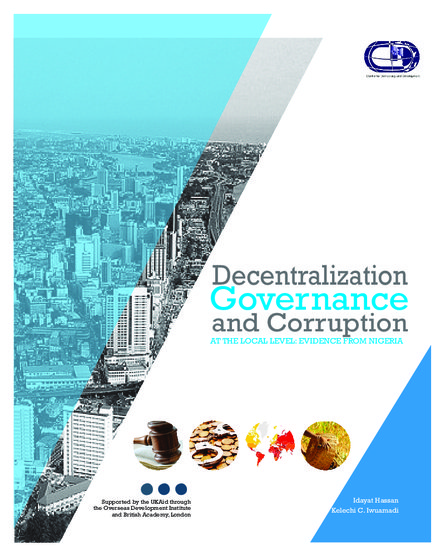
Corruption is high on the agenda of national governments, international organisations, aid providers and civil society. At the same time, decentralisation has become a dominant policy reform across the developing world, within a context of democratisation and expectations that ‘democratic decentralisation’ would bring government closer to the people, increase accountability, and help to combat corruption.
However, research on decentralisation shows it has a mixed record in the real world, and corruption research and policymaking increasingly recognises the need to disaggregate corruption – corruption takes many different forms and has different causes and effects in different settings, and strategies to combat corruption are also likely vary across these types and settings. As a result, the links between decentralisation and corruption are complex, and the role of decentralised governance in combatting corruption remains unclear.
This project is a two-year research collaboration between the Overseas Development Institute (ODI) in the UK, the Centre for Policy Dialogue (CPD) in Bangladesh, and the Centre for Democracy and Development (CDD) in Nigeria on Multi-level Governance, Decentralization and Corruption. The study formed part of the Anti-Corruption Evidence Grant Programme (ACE) funded by the UK Department for International Development (DFID) and administered by the British Academy.
Focusing on Bangladesh and Nigeria, the research seeks to improve understanding of relationships between decentralised governance and corruption and the effectiveness of anti-corruption measures at the local level. The evidence for the effects of decentralisation on corruption is mixed, in part due to the inadequately detailed understandings of both decentralisation and corruption used in many studies, and because both processes are complex.
This project applies a comparative and multilevel approach to decentralisation and corruption both within and across countries. It explores the differing prevalence, dynamics and impacts of corruption in different decentralised contexts; the effects on corruption of local and national factors related to the quality of decentralisation; and the implications for anti-corruption measures. As described in detail below, it does so using an analytical framework that focuses on three different levels (cross country comparison; within country comparison; and sectors), as well as a mixture of qualitative and quantitative methods.